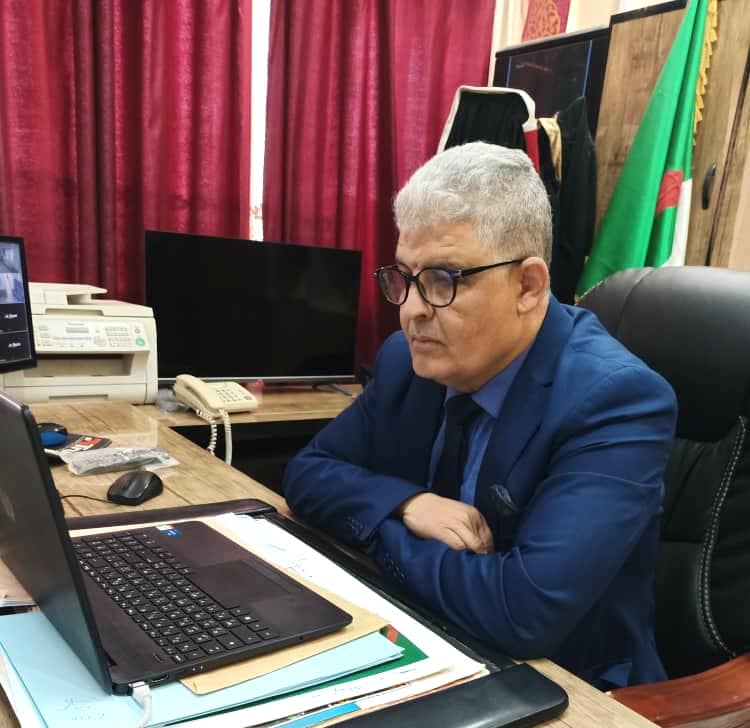1.4.4 “Policy addressing poverty Participate in policy making at local, regional, national and/or global level to implement programmes and policies to end poverty in all its dimensions”
The University of El Oued actively contributes to the development and implementation of policies aimed at eradicating poverty in all its dimensions. Through its collaboration with local and regional authorities, national agencies, and international organizations, the university serves as a hub for research, innovation, and dialogue on effective poverty reduction strategies. By participating in policy-making processes, offering evidence-based recommendations, and spearheading community-focused initiatives, El Oued University demonstrates its commitment to addressing socioeconomic challenges and fostering sustainable development.

Addressing Learning Poverty – Southern Symposium at El Oued University

On December 4, 2023, the University of El Oued, under the leadership of Professor Omar Farhati, hosted the Southern Symposium on “Learning Poverty.” Organized by the University’s Laboratory for Pragmatics and Discourse Analysis in collaboration with the Supreme Council for the Arabic Language and the Ministry of National Education, this one-day symposium, conducted virtually via Zoom, focused on tackling learning poverty as a critical barrier to societal development.
The symposium gathered notable academics and experts to discuss the pressing issue of learning poverty, particularly its impact on children under the age of ten in developing countries. It featured 25 academic presentations distributed across four key themes:
- The role of early exposure to Quranic recitation in developing language and reading fluency in preschool-aged children.
- Strategies for addressing language disorders and difficulties in reading and writing.
- Investing in linguistic immersion initiatives and hosting reading festivals like “Algeria Reads.”
- The significance of integrating modern technological tools, including artificial intelligence and digital resources, into education systems.
Professor Farhati highlighted the university’s dedication to promoting the Arabic language as a global communication tool by 2050-2070. He also emphasized the university’s initiatives to teach Arabic to international students, such as those from Malaysia and Uzbekistan, and its alignment with national efforts to modernize education using digital tools and AI.
Source: https://www.univ-eloued.dz/en/poverty-learning/

Research on the Role of Zakat Funds in Addressing Poverty in El Oued
Our researchers at the faculty of Islamic studies published extensively to contribute to policies that reduce poverty. An example is the work: The Role of Zakat Funds in Addressing Poverty in El Oued Province (2004-2024) by the researcher Nasr Ben Saad. This research critically evaluates the impact of Zakat funds in reducing poverty levels in the region, utilizing a descriptive and analytical methodology to assess the fund’s contributions over two decades.
Key findings of the study highlight:
- Initial Impact: During the early years of the study period, Zakat funds played a notable role in alleviating poverty, demonstrating the effectiveness of community-based financial support systems in addressing economic disparities.
- Challenges in Recent Years: The research identifies a decline in the impact of Zakat funds in recent years, attributed to reduced Zakat collections, which underscores the need for innovative strategies to revitalize these funds and enhance their effectiveness.
- Policy Recommendations: The study offers insights for policymakers to optimize the allocation and collection of Zakat to maximize its potential in poverty alleviation.
Source: https://dspace.univ-eloued.dz/items/ce185762-62a7-4d46-b8ce-903aac1f205f
